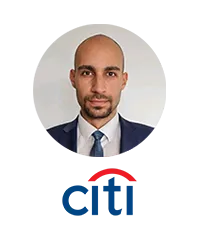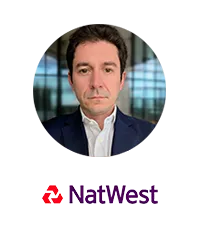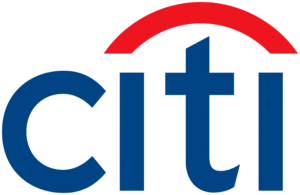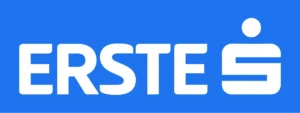CASE STUDY
The Employer Experience Proposition
Global Internal Benchmark for key HR Metrics. Key HR Metrics are aggregated and shared globally between different regions so each region can compare their own results with others within Sony. This is a good use case of how own data is utilised and leveraged in a global scale.
- 01Digital marketing – More important than ever
- 02Commercial innovation
- 03Post-pandemic era: An accelerator of digital transformation
- 04Importance of developing the right content
- 05Future of pharma sales & marketing
- 06Customer centricityand customer engagement
CASE STUDY
The Employer Experience Proposition
Global Internal Benchmark for key HR Metrics. Key HR Metrics are aggregated and shared globally between different regions so each region can compare their own results with others within Sony. This is a good use case of how own data is utilised and leveraged in a global scale.
- 01Digital marketing – More important than ever
- 02Commercial innovation
- 03Post-pandemic era: An accelerator of digital transformation
- 04Importance of developing the right content
- 05Future of pharma sales & marketing
- 06Customer centricityand customer engagement
Speakers
Sample of Keynote Speakers and their Case Studies
CASE STUDY
The Employer Experience Proposition
Global Internal Benchmark for key HR Metrics. Key HR Metrics are aggregated and shared globally between different regions so each region can compare their own results with others within Sony. This is a good use case of how own data is utilised and leveraged in a global scale.
- 01Digital marketing – More important than ever
- 02Commercial innovation
- 03Post-pandemic era: An accelerator of digital transformation
- 04Importance of developing the right content
- 05Future of pharma sales & marketing
- 06Customer centricityand customer engagement
CASE STUDY
Artificial Intelligence for Credit Risk Management
To review the future trends in Credit Risk and how AI can help optimise the Risk Management process.
- 01Data Science Intro
- 02AI at the Enterprise level
- 03Challenges for AI in Risk Management
- 04Applications for Credit Risk
- 05Future Trends
In this session, I’ll explore the critical role of being the bridge between product and technology, where true product development excellence happens. Drawing on my experience in transformation, including agile transformation and large-scale delivery, I’ll share how connecting vision with execution, and people with purpose leads to better collaboration, stronger outcomes, and more impactful products — the cornerstone of product and agile excellence.
CASE STUDY
Basics for Making a Wholesale Credit Risk Decision
Reminder of key concepts to keep in mind when making a credit decision, around case studies.
- 01Introduction/Simplified taxonomy
- 02Case Study
- 03Rating
- 04Transaction analysis
- 05Granting limits
Pre-Start Phase:
1.Patient Safety Review:
- Assess patient demographics, drug specifics, AE (Adverse Event) incidence rates, available resources, and programme design fundamentals
- Integrate multifaceted support resources, including call centres, educational materials, and digital tools
2.Contracting Essentials:
- Determine the need for standalone PVAs (Pharmacovigilance Agreements) or safety clauses
- Critical contract elements: Include audit rights, clear definitions, mandatory training, AE reporting procedures, contact details, and reconciliation processes
3.AE Training and Vendor Setup:
- Implement comprehensive AE training protocols
- Establish a robust vendor monitoring strategy with clear KPIs, defined monitoring frequency, and audit readiness
During the Programme:
1.Vendor Performance and AE Monitoring:
- Conduct regular vendor reviews to ensure compliance with contractual obligations
- Maintain ongoing reconciliation and monitor AE trends to identify any emerging issues
Post Completion:
1.Study Reporting:
- Prepare a comprehensive study report summarising outcomes, key learnings, and areas for improvement
CASE STUDY
The New Credit Risk Frontier: Cyber Resilience as a Credit Metric
Assessing borrower cyber maturity as part of credit risk due diligence. Regulatory expectations and market trends shaping cyber-credit risk integration.
- 01How to stay ahead of the curve: Opportunities and challenges in the evolving space
- 02Evaluating the organisation’s technological maturity and culture for adopting AI
- 03How is AI driving product innovation?
- 04KPIs to track the success of AI initiatives
In an evolving landscape where customer expectations continually rise, understanding and proactively addressing customer needs is no longer optional—it’s essential. This session explores how empathy-driven customer experience (CX), combined with strategic automation and cutting-edge AI, can radically enhance efficiency, agent performance, and customer loyalty. Leveraging real-world insights and innovative frameworks, discover practical ways to future-proof your contact centre operations.
CASE STUDY
Loan Pricing With AI
In a more detailed manner, I would like to share the usage of models, as well as the choices underlying each step.
- 01Usage of AI
- 02Pricing support
- 03Clustering
- 04Modelling
- 05AI for pricing
- 06Lessons learnt
At Accor, our journey in embedding Strength-Based Leadership and building an ecosystem of coaches is a strategic priority and a cornerstone of our people development philosophy.
In our pursuit of a coaching culture, we’ve implemented a range of initiatives that bring together the best different developmental resources. These initiatives are not standalone programmes; they are part of a deliberate, connected effort to empower our leaders and teams. By focusing on individual and collective strengths, and grounded in core coaching principles, we are shaping a workplace where continuous learning, empathy, and performance go hand in hand. This culture fosters not only personal growth but also drives team resilience, engagement, and business impact.
Rather than just talking about the theory, we want you to hear directly from our leaders. They will share how adopting a coaching mindset has transformed their leadership and the tangible difference it has made for their teams and the organisation as a whole.
CASE STUDY
AI in Credit Risk Management: Faster, Higher — but Not Stronger
Artificial Intelligence (AI) and Machine Learning (ML) promise efficiency and new insights in risk management. However, in credit risk modelling, their added value is limited. ML models, such as Random Forest, often do not outperform traditional approaches, while introducing challenges in explainability, validation, and regulatory compliance — especially under the EU AI Act, which classifies creditworthiness assessments as a high-risk application. This talk explores where AI can still make a meaningful contribution.
- 01Traditional personalisation is insufficient and flawed
- 02CX needs to evolve to Hyper-Personalisation
- 03AI & Advanced Analytics is at the heart of Hyper-Personalisation
- 04Business case for Hyper-Personalisation is strong
- 05Use Cases & Examples
For decades, leadership has been benchmarked against outcomes — growth, profitability, market share. But as we enter an era defined by complexity, stakeholder capitalism, and workforce fluidity, the metrics for leadership success are evolving.
Today’s most successful organisations aren’t just technology-enabled or agile — they are human-centred by design. Why? Because the greatest differentiator is no longer strategy or digital capability — it’s the human system behind it. Human-centred leadership is now the critical foundation for driving engagement, innovation, and resilience in a world where uncertainty is constant and value creation is deeply intertwined with trust, purpose, and well-being. This session reframes human-centred leadership as a strategic operating model — one that redefines performance, strengthens culture, and aligns leadership behaviours with long-term enterprise value.







CASE STUDY
Artificial Intelligence for Credit Risk Management
To review the future trends in Credit Risk and how AI can help optimise the Risk Management process.
- 01Data Science Intro
- 02AI at the Enterprise level
- 03Challenges for AI in Risk Management
- 04Applications for Credit Risk
- 05Future Trends
In this session, I’ll explore the critical role of being the bridge between product and technology, where true product development excellence happens. Drawing on my experience in transformation, including agile transformation and large-scale delivery, I’ll share how connecting vision with execution, and people with purpose leads to better collaboration, stronger outcomes, and more impactful products — the cornerstone of product and agile excellence.


CASE STUDY
Basics for Making a Wholesale Credit Risk Decision
Reminder of key concepts to keep in mind when making a credit decision, around case studies.
- 01Introduction/Simplified taxonomy
- 02Case Study
- 03Rating
- 04Transaction analysis
- 05Granting limits
Pre-Start Phase:
1.Patient Safety Review:
- Assess patient demographics, drug specifics, AE (Adverse Event) incidence rates, available resources, and programme design fundamentals
- Integrate multifaceted support resources, including call centres, educational materials, and digital tools
2.Contracting Essentials:
- Determine the need for standalone PVAs (Pharmacovigilance Agreements) or safety clauses
- Critical contract elements: Include audit rights, clear definitions, mandatory training, AE reporting procedures, contact details, and reconciliation processes
3.AE Training and Vendor Setup:
- Implement comprehensive AE training protocols
- Establish a robust vendor monitoring strategy with clear KPIs, defined monitoring frequency, and audit readiness
During the Programme:
1.Vendor Performance and AE Monitoring:
- Conduct regular vendor reviews to ensure compliance with contractual obligations
- Maintain ongoing reconciliation and monitor AE trends to identify any emerging issues
Post Completion:
1.Study Reporting:
- Prepare a comprehensive study report summarising outcomes, key learnings, and areas for improvement


CASE STUDY
The New Credit Risk Frontier: Cyber Resilience as a Credit Metric
Assessing borrower cyber maturity as part of credit risk due diligence. Regulatory expectations and market trends shaping cyber-credit risk integration.
- 01How to stay ahead of the curve: Opportunities and challenges in the evolving space
- 02Evaluating the organisation’s technological maturity and culture for adopting AI
- 03How is AI driving product innovation?
- 04KPIs to track the success of AI initiatives
In an evolving landscape where customer expectations continually rise, understanding and proactively addressing customer needs is no longer optional—it’s essential. This session explores how empathy-driven customer experience (CX), combined with strategic automation and cutting-edge AI, can radically enhance efficiency, agent performance, and customer loyalty. Leveraging real-world insights and innovative frameworks, discover practical ways to future-proof your contact centre operations.


CASE STUDY
Loan Pricing With AI
In a more detailed manner, I would like to share the usage of models, as well as the choices underlying each step.
- 01Usage of AI
- 02Pricing support
- 03Clustering
- 04Modelling
- 05AI for pricing
- 06Lessons learnt
At Accor, our journey in embedding Strength-Based Leadership and building an ecosystem of coaches is a strategic priority and a cornerstone of our people development philosophy.
In our pursuit of a coaching culture, we’ve implemented a range of initiatives that bring together the best different developmental resources. These initiatives are not standalone programmes; they are part of a deliberate, connected effort to empower our leaders and teams. By focusing on individual and collective strengths, and grounded in core coaching principles, we are shaping a workplace where continuous learning, empathy, and performance go hand in hand. This culture fosters not only personal growth but also drives team resilience, engagement, and business impact.
Rather than just talking about the theory, we want you to hear directly from our leaders. They will share how adopting a coaching mindset has transformed their leadership and the tangible difference it has made for their teams and the organisation as a whole.


CASE STUDY
AI in Credit Risk Management: Faster, Higher — but Not Stronger
Artificial Intelligence (AI) and Machine Learning (ML) promise efficiency and new insights in risk management. However, in credit risk modelling, their added value is limited. ML models, such as Random Forest, often do not outperform traditional approaches, while introducing challenges in explainability, validation, and regulatory compliance — especially under the EU AI Act, which classifies creditworthiness assessments as a high-risk application. This talk explores where AI can still make a meaningful contribution.
- 01Traditional personalisation is insufficient and flawed
- 02CX needs to evolve to Hyper-Personalisation
- 03AI & Advanced Analytics is at the heart of Hyper-Personalisation
- 04Business case for Hyper-Personalisation is strong
- 05Use Cases & Examples
For decades, leadership has been benchmarked against outcomes — growth, profitability, market share. But as we enter an era defined by complexity, stakeholder capitalism, and workforce fluidity, the metrics for leadership success are evolving.
Today’s most successful organisations aren’t just technology-enabled or agile — they are human-centred by design. Why? Because the greatest differentiator is no longer strategy or digital capability — it’s the human system behind it. Human-centred leadership is now the critical foundation for driving engagement, innovation, and resilience in a world where uncertainty is constant and value creation is deeply intertwined with trust, purpose, and well-being. This session reframes human-centred leadership as a strategic operating model — one that redefines performance, strengthens culture, and aligns leadership behaviours with long-term enterprise value.
CASE STUDY
Artificial Intelligence for Credit Risk Management
To review the future trends in Credit Risk and how AI can help optimise the Risk Management process.
- 01Data Science Intro
- 02AI at the Enterprise level
- 03Challenges for AI in Risk Management
- 04Applications for Credit Risk
- 05Future Trends
In this session, I’ll explore the critical role of being the bridge between product and technology, where true product development excellence happens. Drawing on my experience in transformation, including agile transformation and large-scale delivery, I’ll share how connecting vision with execution, and people with purpose leads to better collaboration, stronger outcomes, and more impactful products — the cornerstone of product and agile excellence.
CASE STUDY
Basics for Making a Wholesale Credit Risk Decision
Reminder of key concepts to keep in mind when making a credit decision, around case studies.
- 01Introduction/Simplified taxonomy
- 02Case Study
- 03Rating
- 04Transaction analysis
- 05Granting limits
Pre-Start Phase:
1.Patient Safety Review:
- Assess patient demographics, drug specifics, AE (Adverse Event) incidence rates, available resources, and programme design fundamentals
- Integrate multifaceted support resources, including call centres, educational materials, and digital tools
2.Contracting Essentials:
- Determine the need for standalone PVAs (Pharmacovigilance Agreements) or safety clauses
- Critical contract elements: Include audit rights, clear definitions, mandatory training, AE reporting procedures, contact details, and reconciliation processes
3.AE Training and Vendor Setup:
- Implement comprehensive AE training protocols
- Establish a robust vendor monitoring strategy with clear KPIs, defined monitoring frequency, and audit readiness
During the Programme:
1.Vendor Performance and AE Monitoring:
- Conduct regular vendor reviews to ensure compliance with contractual obligations
- Maintain ongoing reconciliation and monitor AE trends to identify any emerging issues
Post Completion:
1.Study Reporting:
- Prepare a comprehensive study report summarising outcomes, key learnings, and areas for improvement
CASE STUDY
The New Credit Risk Frontier: Cyber Resilience as a Credit Metric
Assessing borrower cyber maturity as part of credit risk due diligence. Regulatory expectations and market trends shaping cyber-credit risk integration.
- 01How to stay ahead of the curve: Opportunities and challenges in the evolving space
- 02Evaluating the organisation’s technological maturity and culture for adopting AI
- 03How is AI driving product innovation?
- 04KPIs to track the success of AI initiatives
In an evolving landscape where customer expectations continually rise, understanding and proactively addressing customer needs is no longer optional—it’s essential. This session explores how empathy-driven customer experience (CX), combined with strategic automation and cutting-edge AI, can radically enhance efficiency, agent performance, and customer loyalty. Leveraging real-world insights and innovative frameworks, discover practical ways to future-proof your contact centre operations.
CASE STUDY
Loan Pricing With AI
In a more detailed manner, I would like to share the usage of models, as well as the choices underlying each step.
- 01Usage of AI
- 02Pricing support
- 03Clustering
- 04Modelling
- 05AI for pricing
- 06Lessons learnt
At Accor, our journey in embedding Strength-Based Leadership and building an ecosystem of coaches is a strategic priority and a cornerstone of our people development philosophy.
In our pursuit of a coaching culture, we’ve implemented a range of initiatives that bring together the best different developmental resources. These initiatives are not standalone programmes; they are part of a deliberate, connected effort to empower our leaders and teams. By focusing on individual and collective strengths, and grounded in core coaching principles, we are shaping a workplace where continuous learning, empathy, and performance go hand in hand. This culture fosters not only personal growth but also drives team resilience, engagement, and business impact.
Rather than just talking about the theory, we want you to hear directly from our leaders. They will share how adopting a coaching mindset has transformed their leadership and the tangible difference it has made for their teams and the organisation as a whole.
CASE STUDY
AI in Credit Risk Management: Faster, Higher — but Not Stronger
Artificial Intelligence (AI) and Machine Learning (ML) promise efficiency and new insights in risk management. However, in credit risk modelling, their added value is limited. ML models, such as Random Forest, often do not outperform traditional approaches, while introducing challenges in explainability, validation, and regulatory compliance — especially under the EU AI Act, which classifies creditworthiness assessments as a high-risk application. This talk explores where AI can still make a meaningful contribution.
- 01Traditional personalisation is insufficient and flawed
- 02CX needs to evolve to Hyper-Personalisation
- 03AI & Advanced Analytics is at the heart of Hyper-Personalisation
- 04Business case for Hyper-Personalisation is strong
- 05Use Cases & Examples
For decades, leadership has been benchmarked against outcomes — growth, profitability, market share. But as we enter an era defined by complexity, stakeholder capitalism, and workforce fluidity, the metrics for leadership success are evolving.
Today’s most successful organisations aren’t just technology-enabled or agile — they are human-centred by design. Why? Because the greatest differentiator is no longer strategy or digital capability — it’s the human system behind it. Human-centred leadership is now the critical foundation for driving engagement, innovation, and resilience in a world where uncertainty is constant and value creation is deeply intertwined with trust, purpose, and well-being. This session reframes human-centred leadership as a strategic operating model — one that redefines performance, strengthens culture, and aligns leadership behaviours with long-term enterprise value.
















